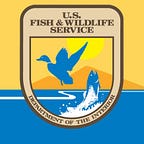Long-abandoned, ‘Orphaned’ Wells Find Champion Named BIL
Funding From the Bipartisan Infrastructure Law Will Remediate Wells, Help Protect Endangered Species at Ohio River Islands National Wildlife Refuge
Orson Welles? — No, no, no, orphaned wells.
Whenever someone says “orphaned wells” it is likely to start with that little exchange. So, what does it even mean?
Oil and gas wells are considered “orphaned” when there is no known owner and therefore no party (person, business, landowner) responsible for their upkeep and maintenance. In this sense, it is like discarded trash on the side of the road: It is a problem; it needs to be cleaned up; but who is responsible for it when the person who pitched it is long gone?
On Muskingum Island at Ohio River Islands National Wildlife Refuge, there are 15 orphaned wells. These wells pose a significant threat to the ongoing efforts to reclaim island habitat and restore the historical bottomland and riparian forest (trees near the river’s edge).
Before the days of locks and dams, the Ohio River Islands were logged and farmed, and frequented by people on horseback, which degraded wildlife habitat and delivered invasive plants. Years of coal mining and oil and gas extraction has also created significant impacts and problems for the river system. The existing orphaned wells continue to leak pollutants into the river, while current fracking — injecting excess brine waste to recover traces of fossil fuels — is forcing oil and gas out into the environment.
But it’s not all doom and gloom; there’s a bright future ahead.
With critical funding through the Bipartisan Infrastructure Law, orphaned wells across the country are getting the care and oversight they so desperately need — and people and wildlife deserve.
- Bipartisan Infrastructure Law Funds Cleanup of Orphaned Well Hazards on Five National Wildlife Refuges
- Addressing Legacy pollutants at Deep Fork
- USFWS Director Martha Williams: Making the Wild Neighborhood Safer From Orphaned Wells
At Ohio River Islands Refuge, nearly $1.2 million has been provided to tackle nine orphaned wells. To fix the multitude of issues they cause, wells can be plugged or “remediated” — restored to a point where their negative impacts are removed. The wells will never again be functional.
Plugging these wells protects not only the 47 varieties of freshwater mussels (including eight that are endangered) that make the refuge and river their home, but all the wildlife that thrives there.
This important effort will also protect the water supply for millions of Americans, cleaning up a major threat to the health of this amazing ecosystem.
The refuge has 24 islands and four mainland tracts, scattered along 362 miles of the upper Ohio River. It encompasses 3,440 acres of land and underwater habitat. The Ohio River and the refuge are important to wildlife, particularly the multitudes of native freshwater mussels, which have their own tremendously positive impacts on water quality.
A playground for a growing number of outdoor enthusiasts, Ohio River Islands National Wildlife Refuge is a backdrop for activities like kayaking and fishing and is steadily becoming a recreation destination — addressing the leaking wells in the Mid-Ohio Valley, benefits everyone (and everything).
By Anna Rehkopf, Office of Communications, Northeast Region
